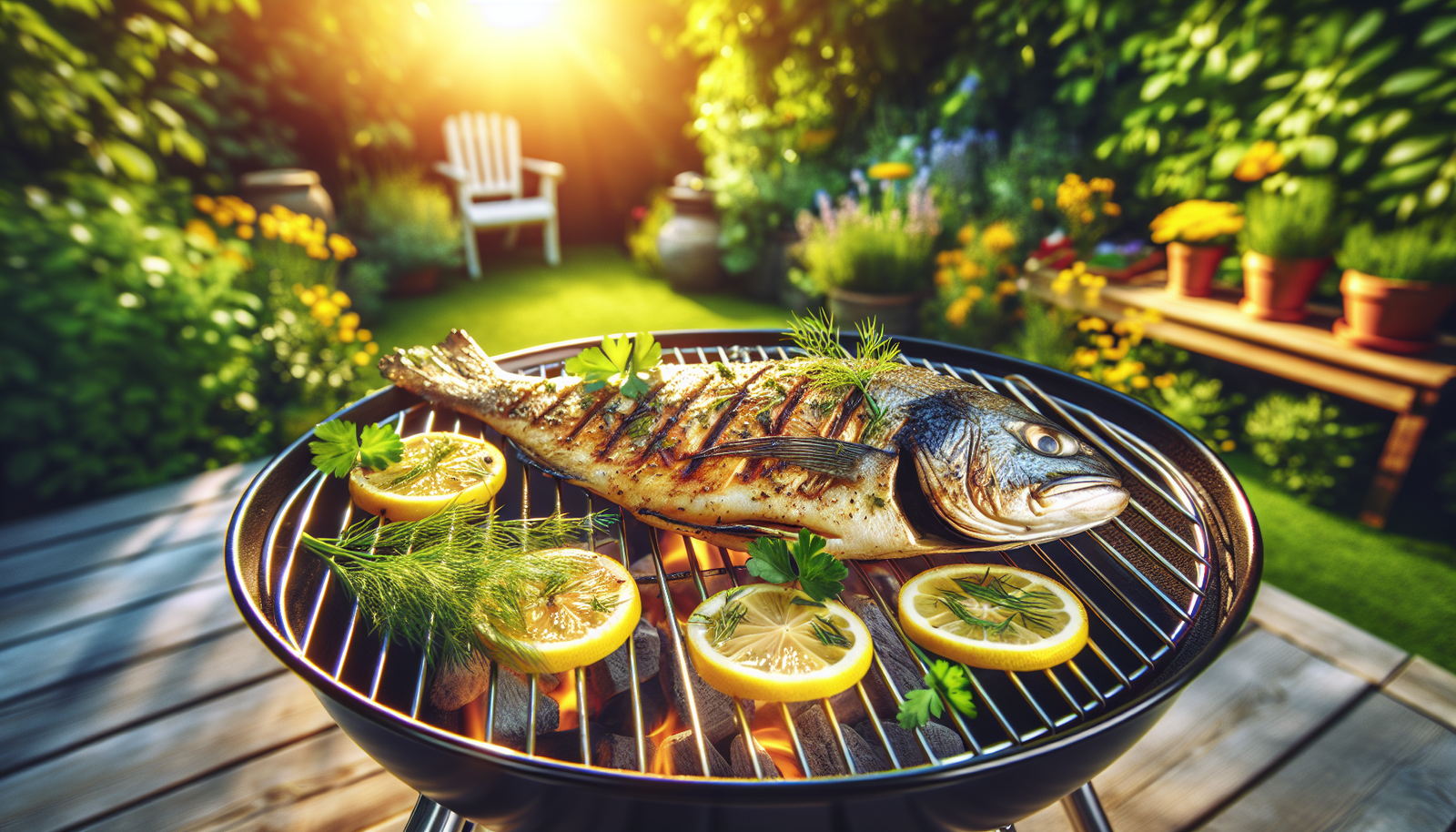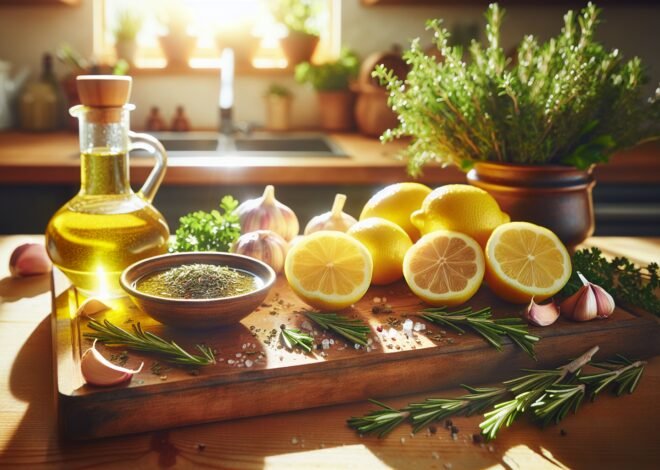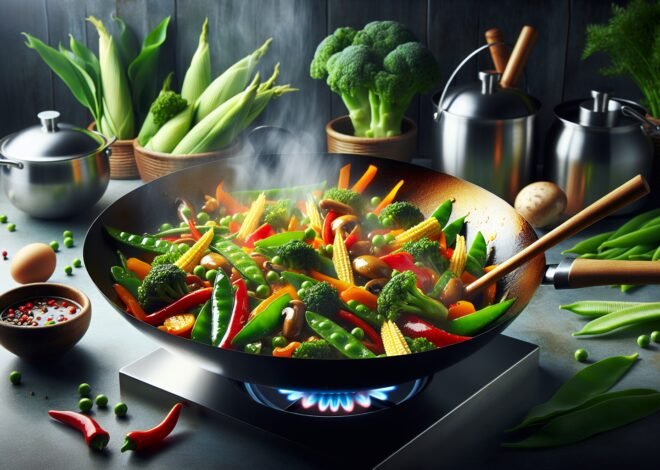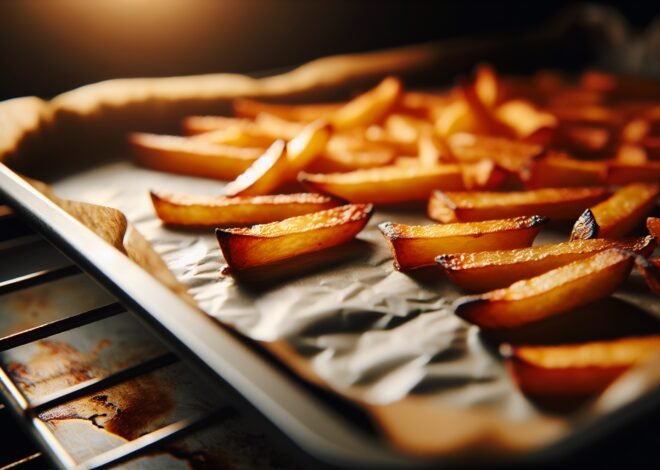
How to Grill Fish Without Sticking: Pro Tips for BBQ Success
Grill fish without sticking is a common challenge for barbecue enthusiasts, yet achieving perfectly grilled, non-stick fish is entirely possible. Did you know that the right techniques can transform grilling from a frustrating experience into a culinary triumph? This article covers essential tips for preventing fish from adhering to the grill, including selecting the right type of fish, proper grill preparation, and mastering oil application. By understanding these key steps, you can confidently serve beautifully grilled fish at your next barbecue. Dive into these pro tips to elevate your grilling skills and consistently enjoy perfectly seared fish.
Understanding the Challenges of Grilling Fish
Grilling fish can be a rewarding yet challenging endeavor. The delicate nature of fish makes it prone to falling apart or sticking to the grill, turning what should be a delightful culinary experience into a frustrating ordeal. Grasping the common issues and how to prevent them is essential for any grill enthusiast aiming to perfect their fish-grilling skills.
Common Problems When Grilling Fish
Grilling fish presents a unique set of challenges. Unlike other proteins, fish can easily overcook due to its lean meat and low fat content. This often results in a dry, unappetizing meal. Another common issue is the fish sticking to the grill, which can lead to the fish falling apart during flipping. Uneven cooking is also a concern, particularly with thicker cuts or whole fish, as the exterior can cook too quickly while the interior remains underdone. Understanding these pitfalls can significantly improve your grilling techniques.
Why Fish Sticks to the Grill
The primary reason fish sticks to the grill is its high protein content. Proteins bond with metal surfaces, especially when heat is applied. A grill that’s not adequately cleaned or oiled exacerbates this issue. Moisture is another culprit; if the fish isn’t properly dried before grilling, it releases moisture that creates steam, making sticking more likely. Additionally, attempting to flip the fish too soon can cause it to stick, as the proteins need time to sear and create a natural barrier.
Choosing the Right Type of Fish for Grilling
Not all fish are created equal when it comes to grilling. Firmer fish like salmon, tuna, and swordfish hold up well to grilling due to their dense texture. They are less likely to fall apart than delicate fish like sole or flounder. Consider the fat content as well; fattier fish tend to stay moist and flavorful on the grill. Whole fish like snapper or trout are excellent choices if you’re looking for a visually impressive dish with even grilling potential.
Essential Tools and Techniques for Non-Stick Grilling
Mastering the art of non-stick grilling requires the right tools and techniques. A well-prepped grill and the right type of oil are pivotal for preventing fish from sticking and ensuring even cooking. Understanding the ideal cooking temperatures further enhances the grilling experience, leading to perfectly grilled fish every time.
Prepping the Grill for Fish
Prepping the grill is a crucial step in avoiding sticky situations. Begin by cleaning the grates thoroughly to remove any old food residue that can cause sticking. Preheat the grill to ensure it reaches the desired temperature before placing the fish on it. This helps the fish sear quickly, creating a natural release. Oil the grates using a paper towel dipped in oil held by tongs; this forms a barrier between the metal and the fish, further preventing sticking.
Best Oils to Prevent Fish from Sticking
Choosing the right oil is vital for non-stick grilling. Opt for oils with a high smoke point, such as canola, grapeseed, or peanut oil. These oils can withstand the high heat of grilling without breaking down and imparting a burnt flavor. Apply the oil generously to both the grill grates and the fish itself. Olive oil, while a popular choice, has a lower smoke point and is best used for post-grilling flavor rather than preventing sticking.
Proper Cooking Temperatures for Grilling Fish
Temperature control is essential for achieving perfectly grilled fish. Fish generally cooks quickly, so high heat is preferred to sear the exterior while keeping the interior moist. Aim for a grill temperature of around 400 to 450 degrees Fahrenheit. Use a meat thermometer to ensure the fish reaches an internal temperature of 145 degrees Fahrenheit, indicating it’s done. This method prevents overcooking, maintaining the fish’s natural flavor and texture.
Pro Tips for Perfect Grilled Fish Every Time
With a few pro tips, grilling fish can become a foolproof process. From a step-by-step guide to testing doneness and exploring creative marinades, these insights will elevate your grilling game. Armed with these techniques, you’ll be able to grill fish that is not only non-stick but also bursting with flavor.
Step-by-Step Guide to Grilling Fish Without Sticking
1. **Choose the Right Fish:** Select firm, thick cuts like salmon or tuna.
2. **Dry the Fish:** Pat the fish dry with paper towels to minimize moisture.
3. **Oil the Fish and Grill:** Use a high smoke point oil to coat both surfaces.
4. **Preheat the Grill:** Ensure the grill is hot, around 400-450°F.
5. **Place the Fish on the Grill:** Position skin-side down for skin-on fillets.
6. **Avoid Frequent Flipping:** Let the fish cook undisturbed to form a natural crust.
7. **Use a Fish Spatula:** This tool is thin and flexible, perfect for delicate fish.
8. **Monitor Temperature:** Ensure internal temperature reaches 145°F for doneness.
Testing Fish Doneness on the Grill
Determining if fish is done can be tricky. The flesh should be opaque and separate easily with a fork, indicating it’s cooked through. A meat thermometer provides a foolproof method, ensuring the fish reaches 145°F internally. Another method is the gentle press test; the fish should feel firm but not hard. Overcooked fish becomes tough, so aim for a balance between firmness and tenderness.
Creative Marinades and Seasonings for Grilled Fish
Enhance the flavor of grilled fish with inventive marinades and seasonings. A citrus-based marinade adds brightness and balances the fish’s natural oils. For a spicier kick, consider a marinade with chili flakes and lime. Herb-infused oils with rosemary or thyme impart a subtle yet aromatic flavor. Experiment with global spices like curry or harissa for a unique twist. Allow the fish to marinate for at least 30 minutes for maximum flavor absorption.
Conclusion
To prevent fish from sticking to the grill, start by preheating the grill and thoroughly cleaning the grates. Use oil on the grill and the fish, but avoid excessive oil that can cause flare-ups. Consider using a non-stick grilling basket or aluminum foil to create a protective barrier. Pat the fish dry before grilling and avoid moving it too frequently. Allow the fish to naturally release from the grill when it’s ready to be flipped.
FAQ
How can I prevent fish from sticking to the grill grates?
To prevent fish from sticking, ensure the grill grates are clean and well-oiled. Preheat the grill to a high temperature before placing the fish. This helps create a non-stick surface.
What are the best techniques for grilling fish without it sticking to the grill?
Use a fish basket or grill mat to keep the fish from sticking. Applying a light coat of oil on both the fish and grill grates can also help. Avoid flipping the fish too early; wait until it naturally releases from the grill.
Which types of fish are less likely to stick on the grill?
Fish with a firm texture, such as salmon, tuna, and swordfish, are less likely to stick. Their dense flesh stands up better to the grilling process.
Why does fish often stick to a grill, and how can this be avoided?
Fish sticks due to its delicate flesh and moisture content. Avoid this by ensuring the grill is hot, the fish is dry, and using a light oil coating on both surfaces.
What tools or accessories help in preventing fish from sticking to the grill?
Fish grilling baskets, non-stick spray, and grill mats are effective tools. These accessories provide a barrier between the fish and the grill, reducing the chance of sticking.
How do I prepare a fish to ensure it doesn’t stick when grilling?
Dry the fish thoroughly with paper towels and season it. A thin layer of oil on both the fish and grill grates aids in preventing sticking. Allow the fish to come to room temperature before grilling for even cooking.











